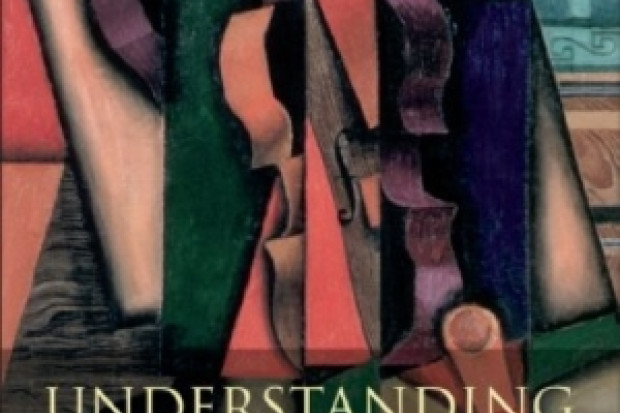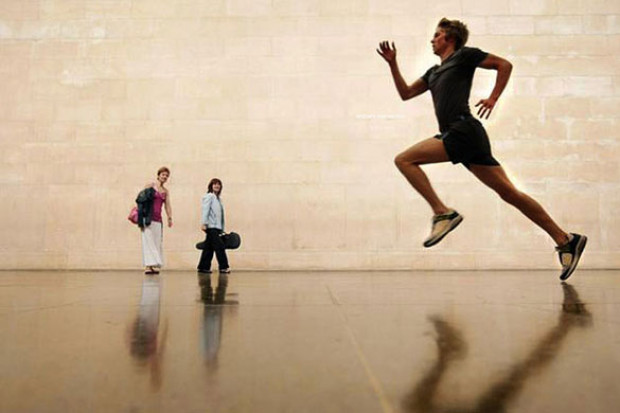The Critic? Who Cares?
‘No one ever raised a statue to a critic’ is a remark attributed to Jan Sibelius. At least in Ireland we have proved him wrong. Mind you, the volumes of published music reviews and the book The Perfect Wagnerite would probably not have earned George Bernard Shaw his bronze effigy at the National Gallery if he had not also penned a few popular plays. However, Shaw was an influential and controversial writer on music for much of his life. His savage indictments of composers and performers would probably have landed him in many a libel case nowadays. Tolerance for fair, and even unfair, comment was much more liberal a hundred years ago; so much for progress.
Complaints are often heard that the real art of musical criticism is dead and that critics contribute little to the real development of music. As in all generalisations there is some truth, but not as much as some would have us imagine. Such condemnation is often associated with a person having received a poor notice and is looking for some solace. None of us likes being criticised; if one has been a performer as well as a critic, as I have, one becomes aware of the hurt that a badly focused critique can cause. Having worked for maybe a lifetime on a piece, an intemperate review by someone with only a passing knowledge of a score can have a serious effect. Critics have a wide range of music to cover and will not have the intimate understanding that many performers acquire of particular works.
Let us examine the situation systematically.
‘The art of criticism is dead’
While I would certainly disagree with this comment, I have to concede that the great days of writing memorable music criticism is largely behind us. Where is the Shaw, Newmann or Cardus of today? Space is a prime problem. In the early years of the twentieth century a paper was willing to give over maybe 5,000 words to a critic writing on a single event, plus a few days in which to prepare a piece (this article is just over 2,000 words long). The result was not simply reviews but often delightful and valuable essays on the topic, observations still worth reading today. The writer had room to expand on a theme, to examine a composition, to evaluate a performance. Today, with ever increasing pressures, most space in a paper seems to be given over to the most popular ‘bread and circuses’ activities that will sell the maximum number of copies – currently sex, sport and financial scandals. As the arts community is small in proportion to such readers, its effect on circulation is tiny. It is left to a small number of publications to carry on, principally the Irish Times and the Sunday Tribune. It is interesting to see that the best daily arts coverage in these islands, in my opinion, is the Financial Times, with a full page daily, containing excellent pieces on the arts; it says something about the cultural mores of the British business community. The only writer in recent decades to have worthwhile pieces published in book form has been Andrew Porter. His time at the New Yorker provided him with just the extended space needed and the resulting volumes of his articles provide excellent reading.
Problems for the critic today
I believe that the role of the critic in our small Irish market is quite different to that of someone writing in London or New York. A London critic will have an enormous calendar to cover – four major concert halls and three opera houses plus a plethora of smaller venues, all presenting music on a regular, usually daily, basis. One can have some sympathy, then, for a jaded critic listening to, say, Mahler’s Fourth Symphony for the fourth time in a year. In an effort to write something that will grab attention, sharp comments on details of performance are bound to emerge: a messed phrase here, an odd tempo there, and the like. However, when a Dublin critic is reviewing Mahler’s Fourth, he may be hearing it for the first time in three or more years and while he must be highly conscious of relevant performance standards, he will be pleading for more frequent performances, rather than nit-picking at small details.
Perhaps the Irish writer will be relying on a CD for information on the work, again setting up an unreasonable standard of comparison. It is a question of perspective and scale. We have a much greater role in supporting and developing music in our small universe than a London or New York critic needs to exhibit with so much live music available. I am not saying they are right to indulge their whims; the current brand of supercilious egotism that seems to pass as criticism in much London-based writing today, something unfortunately aped here at times in a most irritating way, is not good writing. Ireland is a small nation with a tiny group of music lovers struggling to preserve and develop music; we must guard against giving those who are in power, and could not care less about music (when do you see them at concerts?), the ammunition they would happily use to cut off our funds.
By using ‘he’ so far I am not being chauvinistic, as it seems the critical pens are all in male hands at present. There was a time, a generation or so ago, when we had five female critics operating. Many will have had a love/hate relationship with Mary McGoris, Fanny Feehan, Geraldine Neeson, Carol Acton and Judith Segal.
The other problem, and this list of writers demonstrates it, is the huge loss of media outlets. The collapse of the Press Group saw the demise of three publications. Even today, the Independent Group shows a worrying lack of interest in music. Gus Smith gets a few inches if he is lucky in a badly dumbed-down Sunday Independent and Pat O’Kelly is fortunate if his copy appears at all, if not heavily truncated in their morning paper. It seems extraordinary that Tony O’Reilly, President of the Wexford Festival Opera and self-esteemed patron of the arts, does not insist on a better balance for the arts as a whole, and music in particular, in his publications.
One night stands
There is one essential principle I have not dealt with yet, common to music world-wide: we are dealing with an ephemeral artform. The other art critics can tell their readers whether or not they should go to a movie, reserve a theatre seat, purchase a book, visit an exhibition and the like. The unfortunate music critic has only one performance, one chance; there is little solace for a reader when a rave review appears after the only performance of a concert or recital. Opera has a slightly better chance, but again, as most seasons are so short, a weekly paper like mine can rarely get a notice published in time.
What can the poor critic do?
From these constraints and my experience of over three decades of writing reviews, I have formed an attitude – I could hardly call it a philosophy – about the role of the music critic in Ireland. I believe the task of the music critic is to inform and promote, as much as it is to comment and criticise. If we fail to put bums on seats then audiences will diminish, sales of tickets will fall and we are all out of a job. If we really love music, and I can see no other reason for being a critic other than to proselytise, then we must use all our powers to ensure that concert, recital and opera performances are well attended. This is where I feel most concerned about an ‘international’ style of criticism essayed by some writers in Ireland, where local standards are unequivocally compared to those heard on the latest top-class CD or at a performance by a leading world orchestra. Such comparisons often fail to take into account the availability of talent, the level of funding or the limits of the budgets with which our small economy has to work. The reader can build up an opinion that local concerts are not really worth attending at all, a devastating situation. Then there is a critic who pays more attention to showing off his superior knowledge of a performance or work, with an implied ‘I could do better than that’. This is not a critic in my opinion, just a failed performer or composer; yet such attitudes do emerge from time to time under a critical guise.
Of course, a careful balance must be struck. If everything done in Ireland is praised then standards can never rise. There is a middle way, I feel, of encouraging improvement and looking for better next time, rather than outright or intemperate condemnation. For example, if our young performers, who are receiving so many more chances and financial backing today, are showered with unlimited praise, they will get their standards totally out of proportion and have a terrible shock when they leave the country to join foreign conservatories or training schools. There was a time when this was a real problem, with one writer giving many kids a false sense of their own importance, though it seems less so in recent years.
Criticism is opinion, albeit informed opinion, so it will vary among individuals, just as each concert-goer will have his or her view of an event. The first task of the critic is to try to gain a wide range of information on and understanding of the music, and of playing or compositional standards at home and abroad. It is useless just listening to CDs of Furtwangler or Walter; knowledge of today’s performing orchestras and soloists at a similar level to our own must be acquired. A feeling must be gained for where on the ‘scale of excellence’ Irish performances and compositions can be rated. What are standards like in Lyons or Heidelburg, not just in Paris or Berlin? We hear many of the great soloists in Ireland today, but what about the huge number of successful players who are just below that level around the world – how do Irish players compare? It is not an easy task and can involve expensive travel, but a serious critic must make every effort to gather up such knowledge.
The composer and the critic
The place of the composer has improved dramatically in the last ten years. We had a marvellous period in the late 60s and early 70s, during the heyday of the Dublin 20th Century Music Festival, but that was only a biennial event. A lull followed, but the Contemporary Music Centre has made a huge difference in recent years and the work of groups like Concorde and Crash Ensemble have provided increasing opportunities to experience new music, played with real skill. I have a rule of thumb that a concert of new music divides roughly into one third rubbish, one third of some potential interest and one third of works that deserve further performance. Of course, anything experimental is bound to be a mixture of failure and achievement. What constitutes success will depend on individual taste and the critic is only one voice, relying on his personal taste buds to guide him. Again, by keeping in touch with the international world of new music, it is possible to have some feel for where music is going and what is likely to succeed. It will always be a fraught area and the history books are full of infamous condemnations by great experts and fellow composers, of music that is now recognised for its lasting greatness. This can lead to an attitude that it is best to praise everything new and not be caught. But there was a famous fashion-conscious Emperor who landed in the mire over that! Careful balance, again, is the only protection.
Does anyone care?
Finally, I have to stand back and ask myself – ‘So what?’ Does it really matter what we write? That is for those who buy our newspapers to decide, but I think music promotion is essential if audiences are to be enticed to performances. Intelligent reviewing of performances does contribute to performance standards, future plans and developments. However, I think we can let ourselves down and wonder what effect a damning review of, say, the Chicago Symphony Orchestra’s Dublin concert in an Irish paper is going to have in the world at large? If the Irish critic is to have any real effect it will be on how he encourages native talent to develop. In that, I am always tougher (without reaching the outright rudeness one sometimes reads elsewhere) on an established, senior performer who has not pulled his or her weight, than I am with younger, developing talent. I recall one such player being angry with me, but I felt he was playing well below his own high standards and needed a good kick in the pants to get his act together; he was capable of better and he improved subsequently. A less experienced artist would have not been so severely reprimanded, rather encouraged to improve and join the top ranks. It is a tricky art to get this kind of balance right but it is beholden on any critic who takes his job seriously to remind himself of this duty constantly. Otherwise the skill of criticism might well descend into petulance or even a personal egotism on the part of the writer, destroying the whole purpose for which it should be intended and the credibility of the critic in the process.
Published on 1 September 2002
Ian Fox wrote his first criticism for the Irish Times in 1969 and has been music critic of the Sunday Tribune since 1988. He is Irish correspondent for Opera (London) and Opera Canada, and is a member of the Critics' Circle, London. He founded and edited the first Irish classical music magazine, Counterpoint, in 1969. He is a Governor of the Royal Irish Academy of Music and a Council member of the Wexford Festival.














